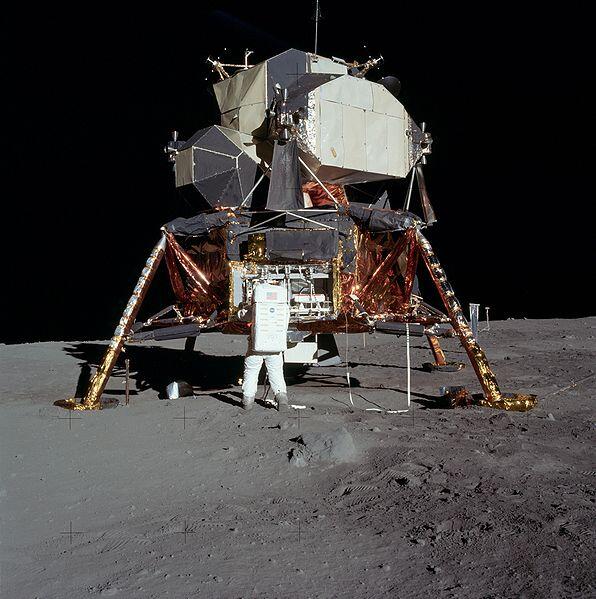Was the moon landing fake? The fake moon landing theory has been with us for 40 years and its enduring nature shows why there is also so much mythology about search engine optimisation. Both are rooted in the same psychological principle which could be helping damage your web presence.

If you were around 40 years ago today, you will remember the excitement about seeing men on the moon. On 20th July 1969 Neil Armstrong became the first human being to walk on the surface of the moon as part of the successful Apollo 11 mission. But ever since, people have doubted whether or not it actually happened. We are told the flag waved in the wind – yet there is no wind on the moon. We are told that the footprints stayed, indicating the presence of moisture, yet there is no water on the moon. And we are told that the moon missions only happened during the presidency of Nixon, suggesting all sorts of conspiracy theories.
Of course, for so many people in NASA, various Government departments, and the media to have kept the faking a secret for 40 years is asking just too much. While the conspiracy theories appear to hold some value, upon analysis you realise they are just that – unfound theories and ideas.
Even so, many people do not believe we went to the moon. They remain convinced that it was all filmed in some secret Hollywood studios and that the astronauts were drugged and thought they really were on the moon. So why do so many people believe this nonsense when scrutiny suggest these ideas are pure fiction? The answer is that simply so many other people believe it. When enough people believe something, we are also tempted into believing it.
We can ask the same question about search engine optimization (SEO). There is considerable nonsense spoken about search engine optimisation as revealed last week by a real expert on the topic, Nikki Pilkington. You will find all sorts of so-called “experts” telling you that you need to do this or that with your web site in order to gain high search engine rankings. Much of it is myth – the trouble is, just like the fake moon landing nonsense, the myths become popular and have currency all of their own, making them believable – indeed “fact” as far as many people are concerned.
Last week I conducted a simple experiment. I wrote two blog posts on highly popular topics – blogging and the recession – in order to see if I needed to do anything other than write (hopefully good) content in order to get high search engine placements. One blog post was “What happens during a recession?” the other was “What exactly is a blog?“. According to Wordtracker these phrases have reasonable numbers of people searching for them each day – almost 900 searches a day on Google alone.
Within two hours of publishing each article I was on the front page of Google for both of them.
So how did I achieve that? Firstly, I didn’t bother with any of the SEO “tricks” or myths. All I did was find a phrase on Wordtracker that people searched for regularly, use that as my headline and write about it. That’s it. All I did was provide content that people wanted.
You can believe the SEO myths if you like; you can believe the Apollo moon landing myths of you like. But I prefer to believe in analysis and evidence. Both the fake moon landing theories and much of what is said about SEO are fake themselves. All the analysis and evidence points to the fact that 40 years ago today Neil Armstrong really did set foot on the moon. All the analysis and evidence points to the fact that much of what you read about SEO is nonsense.
Google – and the other search engines – know that what people want to find online is good, fresh content. Provide that and Google’s algorithm will find you and reward you by high ranking. The only “trick” is that you need to give Google a clear idea as to what your content is about with your headline. But human readers need that too.
In other words, in order to get high search engine rankings you need to do – once again – what the traditional media has been doing for centuries. Write good content and flag it up with a quality headline. Do that and you’ll win the “SEO war” without falling into the trap of believing the mythology.
